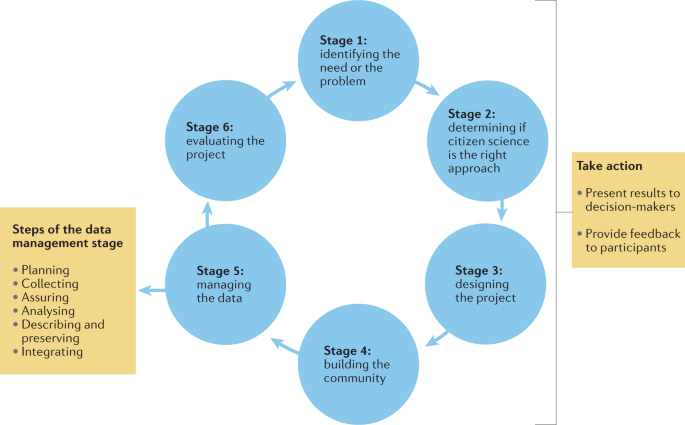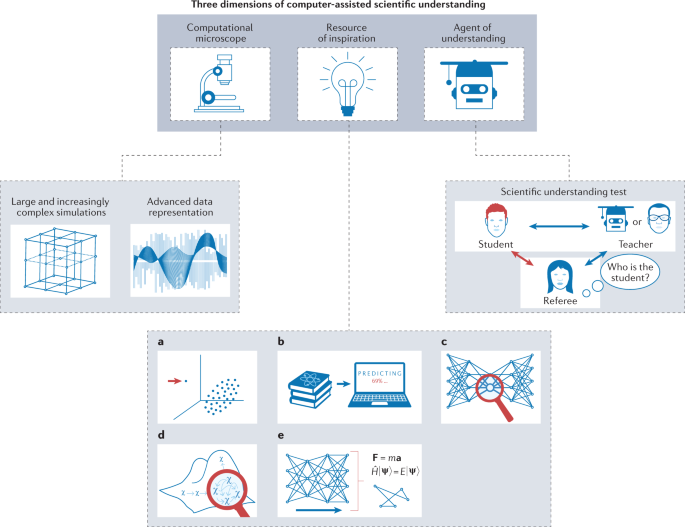1. Chapter: 2 SCIENTIFIC PRINCIPLES AND RESEARCH PRACTICES
Read chapter 2 SCIENTIFIC PRINCIPLES AND RESEARCH PRACTICES: Responsible Science is a comprehensive review of factors that influence the integrity of th...
Read chapter 2 SCIENTIFIC PRINCIPLES AND RESEARCH PRACTICES: Responsible Science is a comprehensive review of factors that influence the integrity of th...
2. Scientific Knowledge Definition, Overview & Examples - Study.com
Apr 4, 2022 · Scientific knowledge is a collection of reliable new information about the physical world. It is gained through the intensive process of data ...
In order to continue enjoying our site, we ask that you confirm your identity as a human. Thank you very much for your cooperation.
3. Science, Technology and Society Major | Academics - Pitzer College
Science, Technology and Society studies the production, distribution and utilization of scientific knowledge and technological systems.
4. 3 Dimension 1: Scientific and Engineering Practices
Read chapter 3 Dimension 1: Scientific and Engineering Practices: Science, engineering, and technology permeate nearly every facet of modern life and hold.
Read chapter 3 Dimension 1: Scientific and Engineering Practices: Science, engineering, and technology permeate nearly every facet of modern life and hold...
5. Western science and traditional knowledge: Despite their variations ...
At present, traditional ecological knowledge is interpreted as a cumulative body of knowledge, practices and representations that describes the relationships of ...
Cultures from all over the world have developed different views of nature throughout human history. Many of them are rooted in traditional systems of beliefs, which indigenous people use to understand and interpret their biophysical environment (Iaccarino, 2003). These systems of managing the environment constitute an integral part of the cultural identity and social integrity of many indigenous populations. At the same time, their knowledge embodies a wealth of wisdom and experience of nature gained over millennia from direct observations, and transmitted—most often orally—over generations.

6. Technology | Definition, Examples, Types, & Facts | Britannica
Aug 24, 2023 · Technology, the application of scientific knowledge to the practical aims of human life or, as it is sometimes phrased, to the change and ...
Technology, the application of scientific knowledge to the practical aims of human life or, as it is sometimes phrased, to the change and manipulation of the human environment. From hand tools to computers and engineering, learn more about technology in this article.

7. Knowledge, Technology and Complexity in Economic Growth
The development of science, technology, innovation and production require both codified and tacit knowledge but the codifiable component of science and ...
Co-Chairs: Ricardo Hausmann (Director, Center for International Development and Professor of the Practice of Economic Development, Harvard Kennedy School of Government) and José Domínguez (Professor of Structural Engineering, School of Engineering, University of Seville).

8. Science the Endless Frontier
The responsibility for basic research in medicine and the underlying sciences, so essential to progress in the war against disease, falls primarily upon the ...
In a letter dated November 17, 1944, President Roosevelt requested my recommendations on the following points:
9. Citizen science in environmental and ecological sciences - Nature
Aug 25, 2022 · ... in scientific research and the levels of participation. At this stage, it is useful to think about the key stakeholders and try to ...
Citizen science is an increasingly acknowledged approach applied in many scientific domains, and particularly within the environmental and ecological sciences, in which non-professional participants contribute to data collection to advance scientific research. We present contributory citizen science as a valuable method to scientists and practitioners within the environmental and ecological sciences, focusing on the full life cycle of citizen science practice, from design to implementation, evaluation and data management. We highlight key issues in citizen science and how to address them, such as participant engagement and retention, data quality assurance and bias correction, as well as ethical considerations regarding data sharing. We also provide a range of examples to illustrate the diversity of applications, from biodiversity research and land cover assessment to forest health monitoring and marine pollution. The aspects of reproducibility and data sharing are considered, placing citizen science within an encompassing open science perspective. Finally, we discuss its limitations and challenges and present an outlook for the application of citizen science in multiple science domains. Contributory citizen science is a method in which non-professional participants contribute to data collection in whole or in part to advance scientific research. This Primer outlines the use of citizen science in the environmental and ecological sciences, discussing participant engagement, data quality assurance and bias correction.

10. UNESCO Recommendation on Open Science
Missing: called nature
The UNESCO Recommendation on Open Science is the first international standard setting instrument on open science.
11. Chapter 1 Science and Scientific Research - Lumen Learning
Missing: foreign | Show results with:foreign
What is research? Depending on who you ask, you will likely get very different answers to this seemingly innocuous question. Some people will say that they routinely research different online websites to find the best place to buy goods or services they want. Television news channels supposedly conduct research in the form of viewer polls on topics of public interest such as forthcoming elections or government-funded projects. Undergraduate students research the Internet to find the information they need to complete assigned projects or term papers. Graduate students working on research projects for a professor may see research as collecting or analyzing data related to their project. Businesses and consultants research different potential solutions to remedy organizational problems such as a supply chain bottleneck or to identify customer purchase patterns. However, none of the above can be considered “scientific research” unless: (1) it contributes to a body of science, and (2) it follows the scientific method. This chapter will examine what these terms mean.
12. Transforming our world: the 2030 Agenda for Sustainable Development
Preamble This Agenda is a plan of action for people, planet and prosperity. It also seeks to strengthen universal peace in larger freedom.
Preamble This Agenda is a plan of action for people, planet and prosperity. It also seeks to strengthen universal peace in larger freedom. We recognise that eradicating poverty in all its forms and dimensions, including extreme poverty, is the greatest global challenge and an indispensable requirement for sustainable development. All countries and all stakeholders, acting in collaborative partnership, will implement this plan.
13. Diplomacy: The U.S. Department of State at Work
Missing: level knowledge
Bureau of Public Affairs June 2008

14. Research and Development (R&D) Definition, Types, and Importance
R&D allows a company to stay ahead of its competition by catering to new wants or needs in the market. Companies in different sectors and industries conduct R&D ...
Research and development (R&D) is a term to describe the effort a company devotes to the innovation, and improvement of its products and processes.
:max_bytes(150000):strip_icc()/randd.asp-fb436cb94bed4c8a8032f732887153db.jpg)
15. On scientific understanding with artificial intelligence - Nature
Oct 11, 2022 · Artificial intelligence (AI) has been called a revolutionary tool for science and it has been predicted to play a creative role in research in ...
An oracle that correctly predicts the outcome of every particle physics experiment, the products of every possible chemical reaction or the function of every protein would revolutionize science and technology. However, scientists would not be entirely satisfied because they would want to comprehend how the oracle made these predictions. This is scientific understanding, one of the main aims of science. With the increase in the available computational power and advances in artificial intelligence, a natural question arises: how can advanced computational systems, and specifically artificial intelligence, contribute to new scientific understanding or gain it autonomously? Trying to answer this question, we adopted a definition of ‘scientific understanding’ from the philosophy of science that enabled us to overview the scattered literature on the topic and, combined with dozens of anecdotes from scientists, map out three dimensions of computer-assisted scientific understanding. For each dimension, we review the existing state of the art and discuss future developments. We hope that this Perspective will inspire and focus research directions in this multidisciplinary emerging field. Scientific understanding is one of the main aims of science. This Perspective discusses how advanced computational systems, and artificial intelligence in particular, can contribute to driving scientific understanding.

16. What is “Indigenous Knowledge” And Why Does It Matter? Integrating ...
Dec 2, 2022 · ... scientific evidence alone and advance more inclusive evidence ... Science and Technology Policy (OSTP) and many others in the Federal government.
By Raychelle Aluaq Daniel, Deputy Director for the Arctic Executive Steering Committee and Policy Advisor for Indigenous Knowledge T. ‘Aulani Wilhelm, Assistant Director for Ocean Conservation, Climate and Equity Haley Case-Scott, Policy Assistant, Climate and Environment and Vice-Chair for the Interagency Working Group on Indigenous Traditional Ecological Knowledge Dr. Gretchen Goldman, Assistant Director for Environmental Science,…

17. FACT SHEET: The American Jobs Plan | The White House
Mar 31, 2021 · President Biden is calling on Congress to ... Advance U.S. leadership in critical technologies and upgrade America's research infrastructure.
While the American Rescue Plan is changing the course of the pandemic and delivering relief for working families, this is no time to build back to the way things were. This is the moment to reimagine and rebuild a new economy. The American Jobs Plan is an investment in America that will create millions of…

18. Media Release: Nature's Dangerous Decline 'Unprecedented'; Species ...
May 5, 2019 · With good progress on components of only four ... This is why the scientific evidence compiled in this IPBES Global Assessment is so important.
Nature is declining globally at rates unprecedented in human history — and the rate of species extinctions is accelerating, with grave impacts on people around the world now likely, warns a landmark new report from IPBES, the summary of which was approved at the 7th session of the IPBES Plenary, meeting last week (29 April – 4 May) in Paris.

19. Questions and Answers about CRISPR | Broad Institute
A: CRISPR genome editing allows scientists to quickly create cell and animal models, which researchers can use to accelerate research into diseases such as ...
Q: What is “CRISPR”?
20. National Curriculum Standards for Social Studies: Chapter 2—The ...
Given the nature of individual development in ... The study of individual development and identity will help students to describe factors important to the ...
Standards Main Page Executive Summary Preface Introduction